Terrapin safety Nick Cross makes the most of a cancelled season.
Pop-up music festival featured live performances around College Park


Terrapin safety Nick Cross makes the most of a cancelled season.
Pop-up music festival featured live performances around College Park

Over the Fourth of July weekend, the College Park Arts Exchange (CPAE) hosted Porch Play, a pop-up music festival that featured live performances all across the city. CPAE was eager to repeat their popular event from earlier in the summer to mark Labor Day and the end of summer. The musical celebration, hosted in

Without a health department of its own, the City of College Park is relying on guidance from the state and county to


address public health issues related to COVID-19. And without a police force of its own, the city has turned to the Prince George’s County and University of Maryland police departments to enforce executive orders related to the pandemic.

The Prince George’s County Health Department conducts scheduled and unscheduled inspections of restaurants, retail establishments and other businesses to monitor compliance with current public health regulations, and the police are authorized to issue warnings and shut down gatherings that violate state and county orders.




City Attorney Suellen Ferguson stated
Many College Park residents wonder why the city doesn’t have its own public library. In fact, from 1951 to 1994, it did have a branch of the Prince George’s County Memorial Library System (PGCMLS), but that library, along with one further south on Route 1 in Hyattsville, was closed due to funding cuts and declining use through the 1990s.
Public libraries came to the District and Montgomery County decades before the first county library was established in Laurel in 1906. Hyattsville, Greenbelt and Beltsville were next in the county to gain a public library. The Hyattsville branch opened in 1921. From 1936 until 1984, it was housed in a three-story building at 4330 Farragut Street that was donated to Hyattsville by William Pinkney Magruder
SEE LIBRARY ON 11
Irecently joined College Park Food Bank volunteers, including University of Maryland students, to help direct traffic. Unfortunately, I have seen the long line of cars for these food distributions often in the past six months. Before the pandemic, about 100 families came monthly, but now, around 300 local families come every week. Meanwhile, we have all heard the heartbreaking stories about family members saying farewells with an iPad or giving up jobs to
protect their families or elderly parents. We’ve also been reminded how often our institutions uniquely fail to protect the lives of Black people and other people of color, including our own city’s historic failures in the Lakeland community.
The food bank has been able to meet the need in part due to the generosity and compassion of hundreds of people in our community. Throughout these dual crises, residents have been showing up to help where it matters. I’ve seen this in College Park’s demonstrations and vigils to support Black Lives Matter and in our
conversations to redress historic wrongs against the Lakeland community.
This is who we are. It makes me proud to live in College Park. Now, we need to work together to keep others safe in the months ahead.
With months left to go before life returns to normal, we must maintain this spirit of compassion, community and equity. Wearing masks, maintaining social distance, staying home – none of these things are easy. We shouldn’t do them just to protect ourselves. We must do them to protect each other.
A study of the proposed expansion of the Capital Beltway in Maryland is drawing criticism from communities that would be impacted by the expansion.
The Draft Environmental Impact Study (DEIS) was released on July 10 by the Federal Highway Administration (FHWA) and the Maryland Department of Transportation State Highway Administration (MDOT SHA). This study includes traffic projections and analyses of environmental, engineering and financial issues related to both the build and nobuild alternatives for I-495 and I-270.
The DEIS is one component of the larger I-495 and I-270 Public-Private Partnership (P3) program proposed by Gov. Larry Hogan (R).
The proposal includes the
expansion of the beltway to create up to four for-profit toll lanes with the goal of reducing traffic on the state’s two most traveled freeways. The study was carried out in accordance with the National Environmental Policy Act (NEPA), which requires agencies to evaluate the environmental impacts of proposed actions.
Members of communities across the state have raised issues with the statement, as they believe the state has failed to properly assess the impacts the project will have. Citizens Against Beltway Expansion (CABE) has been advocating for community members to speak out against the project.
According to their site, CABE is, “a growing coalition of civic associations, taxpayers and other organizations demanding better, affordable commuter options for
Managing Editor Mark Goodson mark@hyattsvillelife.com
Advertising Sales Manager Brian Escobar
Business Manager Catie Currie
As the University of Maryland students return to class for another year, I call upon everyone – students, university employees, College Park residents, and everyone who visits College Park, to work together for the safety and protection of all of us. Our community – the families at the food bank, the displaced residents of Lakeland – we all depend on it.
Patrick Wojahn is the mayor of College Park.

suburban Maryland.”
Some parks and homes in College Park will be affected by construction of the project, said Barbara Coufal, CABE’s co-chair.
Coufal wrote in an email that “the draft environmental impact statement shows that MDOT failed to successfully engage residents in P[rince] G[eorge’s] County.”
While Coufal said that no homes will be taken by eminent domain, the state may take some property permanently or use land temporarily during construction. If private property is required for the expansion, MDOT SHA will notify property owners no later than late 2021. The agency will appraise properties and offer owners compensation. Offers will be negotiable.
Mary Cook, president of the North College Park Community Association, expressed particular concern for some members of her community who may be affected.
“Many people who are going to be directly affected don’t speak English as their first language,” she noted.
to be doing in this region is reducing green space by hundreds and hundreds of acres,” Hart said.
The study is slightly over 19,000 pages. Hart noted that the length has made it challenging to fully evaluate the study. “It’s fairly difficult, and it has been one of the problems we have with the proposal, is that the state has made it super complicated,” he said.
The impact of COVID-19 also plays an important factor in how communities have responded to the study. Cook feels that tele-working is having a strong impact on traffic and “doesn’t feel a need for Beltway expansion right now.”
College Park City Councilmember Fazlul Kabir (District 1) suggested that the expansion may no longer be necessary due to the impacts of COVID-19 on traffic volume. Kabir said that, based on reports and analysis, “the driving patterns and congestion on our roadways and highways may not be the same, ever, after the COVID-19 crisis is over.”
A community newspaper chronicling the here and now of College Park Mailing address: PO Box 132, Hyattsville, MD 20781
The College Park Here & Now is published monthly by Streetcar Suburbs Publishing., a 501(c)(3) nonprofit corporation. Editors welcome reader input, tips, articles, letters, opinion pieces and photographs, which may be submitted using the mailing address above or the email addresses provided.
Associate Editor Nancy Welch nancy@hyattsvillelife.com
Writers & Contributors Anuoluwapo Adefiwitan, Dawn Budd, Zamir Courtney, Lily Fountain, Julia Kyles, Julia Nikhinson, Eric Maring, Chris McManes, Pierce Panagakos, Carson Peters, Alexandra Radovic, D.W. Rowlands, Anjali Ravi, Patrick Wojahn
Layout & Design Editor Ashley Perks
Advertising
advertising@hyattsvillelife.com
301.531.5234
Board of Directors
Joseph Gigliotti — President and General Counsel Chris Currie — Vice President

Reva Harris — Treasurer Rosanna Landis Weaver, Gretchen Brodtman, Debra Franklin, T. Carter Ross, Emily Strab Mark Goodson — Ex Officio
Kit Slack — Ex Officio
Circulation: Copies are distributed monthly by U.S. mail to every address in College Park. Additional copies are distributed to popular gathering spots around town. Total circulation is 9,600.
CPH&N is a member of the National Newspaper Association.
The DEIS indicates that Greenbelt Park will be the area most affected by the project. According to Kyle Hart of the National Parks Conservation Association, about an acre of land will be impacted by the expansion.
“We are worried that the state is underestimating what they are calling limited disturbance,” he said.
The expansion will impact the perimeter trail around the park and, noted Hart, “you would have to completely remove them to make way for this highway project.”
Watershed resources would also be impacted inside the park. “The last thing we want
According to Kabir, the city council will discuss the study during their work session on September 15.
In their executive summary of the study, MDOT SHA states that the agency will “evaluate and consider all new information that becomes available to ensure the solutions will meet the needs of Marylanders now and in the future.”
MDOT SHA is hosting a number of virtual public hearings for community discussions of the DEIS. Individuals can register to attend a hearing at 495-270-p3. com/DEIS.
Visit CABE’s website to submit comments on the DEIS by October 8: Cabe495.com
“The last thing we want to be doing in this region is reducing green space by hundreds and hundreds of acres.”
Kyle Hart, National Parks Conservation Association
The College Park Here & Now hosted its monthly community forum on August 20 to weigh the role of community policing as the county moves to recruit a new chief. Residents from neighborhoods across the city participated in the lively discussion.
In hosting this forum, College Park’s newspaper joined several initiatives aimed at improving relations between city residents and police. For years, the Prince George’s County Police Department (PGPD) held a coffee club at Jason’s Deli, providing residents opportunities to meet law enforcement officers who serve the city. Currently, residents can participate in community meetings hosted by City Councilmember Fazlul Kabir (District 1), on the second Monday of each month. And on June 30, the City of College Park launched a town hall series on race and community relations.
The paper’s August forum opened with a discussion about public safety concerns, with participants largely agreeing that thefts from vehicles is a key problem in the city. Llatetra Brown Esters called these “crimes of opportunity.”
Kiersten Johnson raised the issue of burglaries, citing three instances when people tried to enter her home. “It’s one of the reasons we have a German Shepherd,” she said, noting that she did not receive useful responses from the police. Johnson also described surveillance footage from a neighbor’s home security camera, which captured footage of a man pulling an AR-15 assault rifle out of his truck, firing rounds into the air and collecting the shells before driving off.
Zari Malsawma said that she experienced more crime when her family first moved to College Park, in 1988, than she has recently. Malsawma has coordinated a Neighborhood Watch program in College Park Woods since 2006. “My whole motivation really was to get to know my neighbor,” she said. Both Ethan Eagle and Kevin Bradley cited pedestrian safety as a chief concern. “There aren’t enough traffic-calming
county officers working in the city. “I’ve actually had more interactions with Riverdale Park and Greenbelt police than the ones policing my own neighborhood,” Bradley said.
Malsawma said that this lack of connection prompted her to start a Neighborhood Watch program.
relationships between police who settle in the city and their neighbors.
measures along Route 1,” said Eagle. Bradley described his inability to safely teach his 4-year-old son how to ride a bike on College Park’s streets. The group expressed a good deal of concern about the relationship between police and the community, and participants reported that they do not feel connected to
Esters suggested that the newly appointed chief, in partnership with the city, could help officers integrate more fully into the community. Eagle offered that relationships might improve if police officers focused on delivering customer service in addition to intervening in crimes. “It’s not just responding to a crime — it’s the presence of safety rather than the absence of threat,” he said. Johnson liked Eagle’s point, adding that emphasizing the presence of safety could set the system up for more success. She also cited police-in-residence programs through which police get favorable buying terms for homes, and suggested that a program like this in College Park might facilitate stronger
Participants also discussed characteristics they’d like to see in the county’s new police chief. While Eagle expressed doubt that a new chief could radically reshape the culture of a bureaucracy like the police department, Bradley, whose family has experienced racial profiling across three generations, felt strongly that the new chief must push for change. In his view, the department should be led by “someone who understands the failings of the current system and is willing to be an agent of change, embracing new ideas about reform and taking a bottom-up approach driven by data and community engagement, as opposed to a top-down approach driven by fear mongering, ass covering, gas lighting, and preserving the status quo.”
Esters underscored issues of diversity in the county, saying, “If the chief’s main tenant is to protect and serve, then it is
important for [that] individual to have a true understanding of a county — you have to understand and be engaged with every part,” she said.

Malsawma shared that the county’s interim police chief, Hector Velez, called her when he served as District 1 commander. “He said, ‘I want to find out what your concerns are,’” she recalled, adding, “It was a totally unexpected call that I thought was really effective.”
When asked about advice for the new chief, Johnson cited Eagle’s suggestion that the PGPD could frame their approach as a customer service experience. “Police should practice a fundamental belief that prioritizes human dignity and well-being.”
The Here & Now will hold monthly forums for residents to discuss current community concerns. The next forum will be on September 24 at 8 p.m., the topic being “2020 census: Who counts in College Park?” For more information or to participate, contact Mark Goodson at Mark@HyattsvilleLife.com
“I’ve actually had more interactions with Riverdale Park and Greenbelt police than the ones policing my own neighborhood.”
Kevin Bradley, College Park resident
Things aren’t how they used to be in College Park.
This is a reality that Mayor Patrick Wojahn said he faces regularly as he guides residents through the pandemic and into a new city hall.
Though the city is still partially closed down due to COVID-19, Wojahn is moving forward with plans to create a new city hall in downtown College Park. The roughly $47 million project is scheduled to be done by August 2021.
The complex will include 70,000 square feet of retail space designed to attract outside businesses. Wojahn predicts that residents will see a totally different College Park over time.
“It’ll really help revitalize our downtown area,” he said. “I feel passionate about making this a great place to live and work.”
Wojahn recognizes that some people are nostalgic about how College Park was in the past.
“But if we don’t change, things get stagnant, and we end up getting stuck with what we’ve always had,” he said. “I want to make sure we shape changes in a way that best suits the needs of College Park residents.”
Although shaping change is something Wojahn said he has always enjoyed, he never expected to do it as part of a political platform. And he never thought about going into politics until he joined city council in 2007.
Wojahn said that he has been an advocate for the LGTBQ community and environmental
protection since college and has since worked as an attorney for people with disabilities.


“I was very comfortable in the advocacy world, but I never thought of being involved in politics myself, until, in 2007, a friend of mine called me up and said two city council members decided not to run for reelection and encouraged me
to consider running.”
Next thing he knew, his name was on the ballot, and he won. His colleagues said they think being in politics suits Wojahn.
“I’ve known Patrick for about six years now and have always been impressed with his tireless dedication to the city and our neighbors,” Councilmember Kate Kennedy (District 1) said.
Councilmember John Rigg (District 3) agreed. “I got to know [Wojahn] when he was a District 1 councilmember.
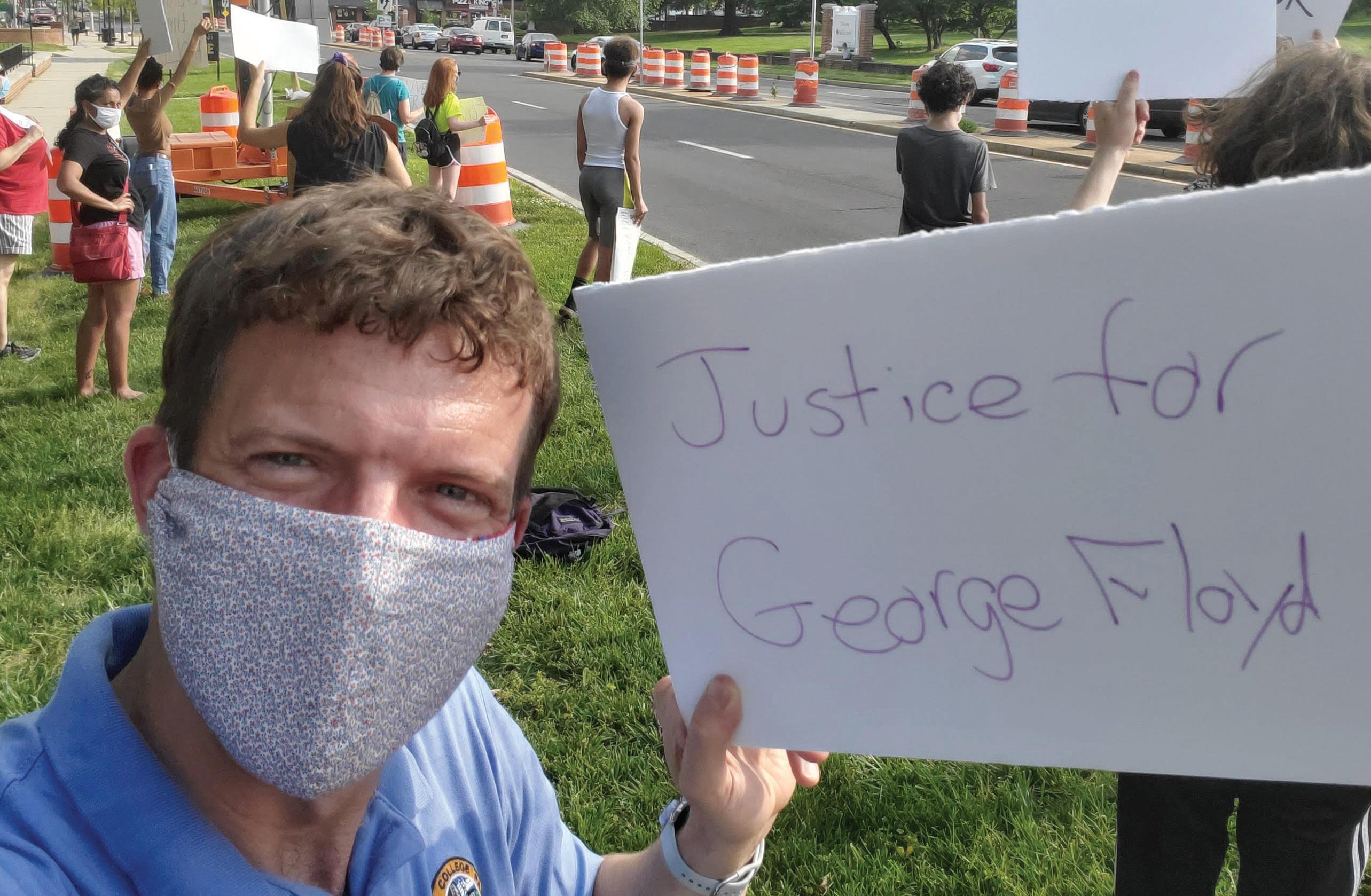
… He’s very thoughtful and public-minded. Even when he represented a district where I didn’t live, I appreciated how he always had the needs of the whole city in mind.”
Some of these needs include addressing poverty and homelessness.
“I first met Mayor Patrick Wojahn a number of years ago when he, as our District 1 councilmember, came to speak to a community group that I was a part of that was focused upon addressing poverty and homelessness in College Park,” said Mark Garrett, senior pastor at the College Park Church of the Nazarene.
Garrett said he spoke to Wojahn after the meeting and invited him to visit the College Park Community Food Bank, an organization that he founded in 2009.
“Patrick not only visited our food bank distribution several times as a volunteer, but before long was willing to become a board member, where he served for several years,” Garrett said.
“Patrick was a strong and early promoter of the food bank’s work, ensuring that neighbors and community leaders knew the work that we were doing.”
Over the years, Garrett said that he and Wojahn have worked together on immigration reform and diversity talks for LGBTQ residents.
According to Garrett, Wojahn has been invaluable in directing funds to organizations that are serving those hit hardest financially in the ongoing COVID-19 pandemic

“Patrick, along with the College Park city government, has not only helped direct funds to our food bank, but he has also personally volunteered at the food bank on a regular basis since the pandemic began,” Garrett said.
Before the pandemic hit, Garrett explained that the food bank served about 100-150 families on the one Saturday each month that it was open.
But, “Since the crisis has begun, we have been serving every Saturday and providing food for 250-315 families each week,” he said. “Having the extra financial support and volunteerism has provided critical sustainability through the crisis, and we can thank Patrick for at least part of this support.”
Wojahn said that he is looking forward to a time when neighbors can gather face-toface and College Park can come alive again.

 By Dawn Budd
By Dawn Budd
The North College Park Community Association (NCPCA) is one of eight civic associations in the City of College Park. It includes residents from the Sunnyside, Hollywood, Daniels Park, Autoville, Cherry Hill and Branchville neighborhoods. According to the NCPCA’s website, www. myncpca.org, the purpose of the association is “to encourage ideas, cooperation, and action needed to strengthen our community and promote the interests of residents and homeowners.” The association strives to create relationships that enhance residents’ sense of belonging. Councilmember Fazlul Kabir (District 1) stated it well when he said, “By being part
of the civic association, residents get the opportunity to meet other neighbors in the community.”

The NCPCA was incorporated in July 1996 under the legal name, North College Park Citizens Association, Inc. In March 2017, the members voted to change the name to The North College Park Community Association, Inc. The articles of incorporation were later amended to use the original name for all legal and tax purposes. The newer name is used for all public purposes. Membership carries a $10 fee and is open to all adult residents of North College Park, and meetings are open to all residents regardless of membership status. When asked whether he thinks residents in these neighborhoods should join NCPCA, Councilmember Kabir
said, “Though membership is voluntary, all residents should try to become part of the NCPCA. A stronger NCPCA means a stronger community voice. Local governments will take the NCPCA’s concerns more seriously if they see the NCPCA is represented by a strong membership.”
NCPCA helps promote residents’ interests through a variety of initiatives, including suggesting budget items to the city council, hosting election forums and advocating for development that enhances the neighborhood. Recent budget items proposed by the NCPCA and subsequently incorporated in the city planning include a new park in Sunnyside, a local dog park and more security cameras in the area.
The NCPCA discusses many

issues that are relevant to the community including zoning, traffic, city amenities, town policies and public safety. NCPCA member Lisa Ealley said she felt the association’s most important accomplishment was stopping construction of a pedestrian bridge from Greenbelt to College Park, which was proposed as part of the Greenbelt Station Townhomes development. In 2015, the NCPCA sent a letter to the city council opposing the bridge, specifically stating that “it will no longer serve as conduit for retail shopping” and asking that, if it were still to be built, to locate it “so there is no isolated walkway, which would be unsafe, and be positioned such that it will not have any negative impact on northern College Park residents.” City and county officials attend association meetings, and
present and discuss upcoming actions being considered by their respective legislative bodies. The NCPCA also welcomes business leaders to participate in an effort to enhance their relationships with the community.
The NCPCA meets the second Thursday of each month from September through June. The officers of the association are Mary Cook, president; Carol Macknis, vice president; Jordan Schakner, treasurer and John Krouse, secretary. Both Jordan and John have decided not to seek reelection, and their positions are to be filled at the meeting on September 10. Judy Blumenthal and Lisa Ealley serve on the Board of Directors. For more information on the NCPCA, including how you can join, please go to www. myncpca.org.
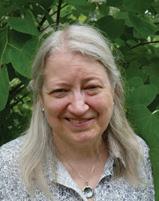
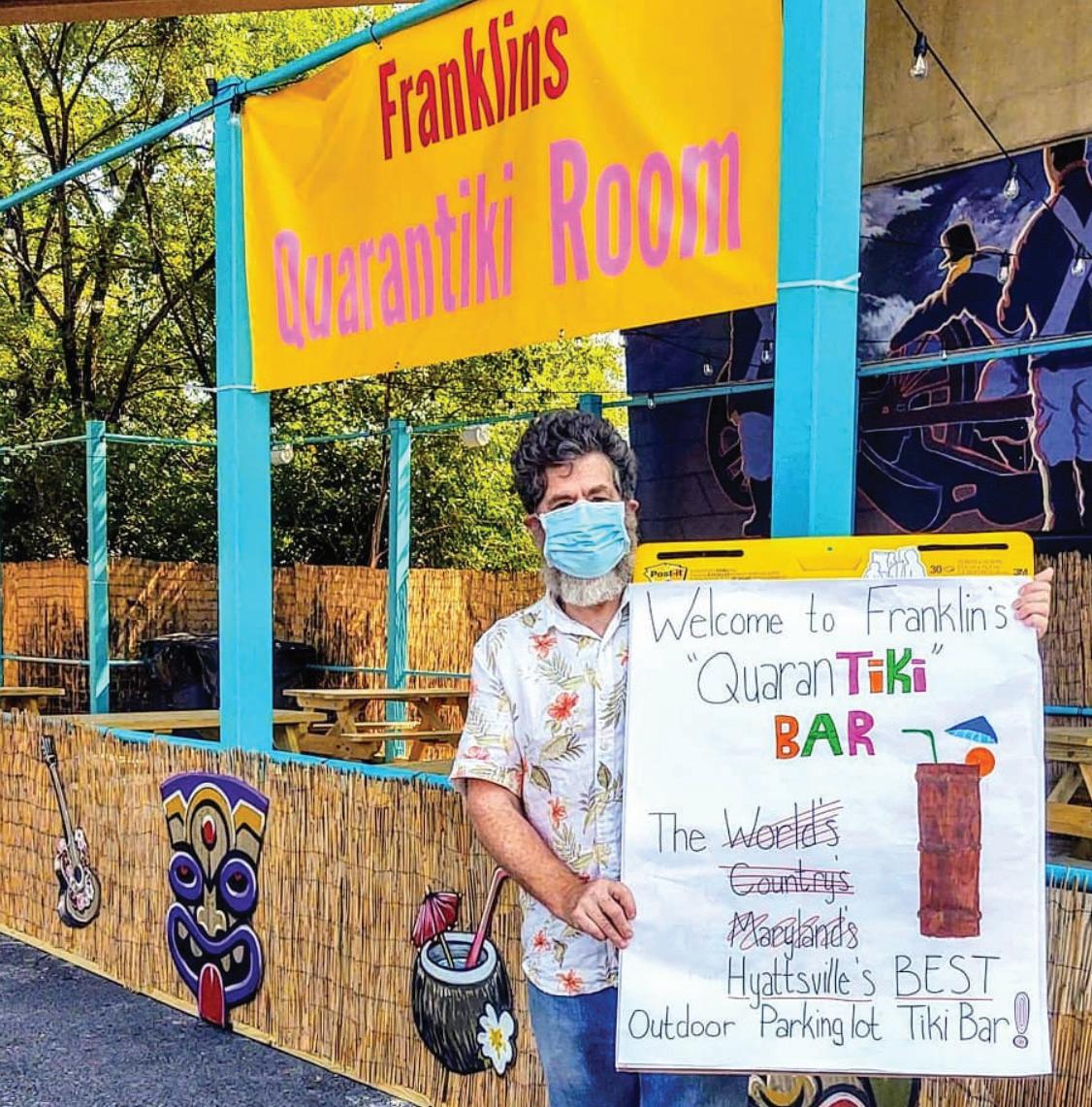 By Lily Fountain
By Lily Fountain

Irecently took a break from gardening every morning; the heat and other other commitments had kept me away. When I returned to the garden, I was happy to find my false blue indigo and goldenrod had multiplied well in my absence. But my rhododendron, irises and asters were fighting off porcelain berry (Ampelopsis brevipedunculata), an invasive, fast-growing vine that’s native to Asia. Easily confused with our own native grapevines, its bright pink to bluegreen berries are mildly toxic to birds, but they eat them and then spread the seeds in their droppings.
I also was letting non-native and invasive mugwort (Artemesia vulgaris) grow next to my driveway because I liked its look and smell. I was later horrified to see mugwort completely covering stretches along Paint Branch Creek near Route 1. This bully has displaced many native wildflowers that I used to see along the creek.
The problem with invasives — porcelain berry, mugwort and countless others — is that they can be so aggressive that they eliminate other species. Ecosystems lose biodiversity. Virtually no insects, animals or diseases co-evolve with them to keep them in check. These non-native,


aggressively growing plants are often inedible or toxic to other wildlife, so they don’t help and often hurt the insects and animals sharing the ecosystem. Non-native plants make their way to our landscape in both intentional and unintentional ways. Early settlers brought garlic mustard to use as an herb, but it escaped captivity. It now threatens wildflowers like spring beauty, trilliums
and Dutchman’s britches by exuding a toxic chemical from its roots. (And it is very sneaky: One garlic mustard plant can release as many as 5,000 seeds.) Some non-natives plants were imported for erosion control and for aesthetic use in landscaping. Japanese stilt grass arrived as packing for Chinese porcelain. We have aquatic invasive species thanks to all those home aquariums that people emptied into convenient streams and ponds. Indeed, hydrilla made its way here from Sri Lanka, thanks to a Florida aquarium dealer who decided that the plant wasn’t satisfactory. He dumped his shipment into a canal in Florida, and the species is now invasive throughout the Southeast United States. We can help keep invasives at bay. The first step in controlling these invaders is learning how to identify them. An online search will offer guidance on removing invasives and abundant information about native alternatives. Extensive information on how to identify and remove plant invaders, along with native alternative replacements, can be found at the National Park Service site: invasive.org/alien/pubs/midatlantic/ midatlantic.pdf.
Planting natives is a successful way to counter invasives. Native plants like to live in groups, shoulder to shoulder. I recently removed ground ivy from part of my yard,
and two weeks later native violets were moving in.
There are alternatives to pulling invasive species, too. Some pesticides can be useful if applied by hand instead of a sprayer. Other approaches are in the works that could level the playing field for native plants. Host-specific biological controls are being developed, and research is underway to assess whether natural predators —typically insects or fungi — from the non-native plant’s home territory can be used to control them. We can also support legislation that minimizes use of invasive plants and promotes native plants in public places. More information is available from groups such , Native Landscaping, and the Maryland Sierra Club’s Invasive Species Corner and Chesapeake Wild Ones.
While some non-native plants may be attractive and low maintenance, too many can spread like wildfire and choke out natives that support wildlife in our gardens. A major role for humans in our ecosystem is to protect us and our plants and animals from plant invaders.
With Councilmember Brennan’s Resignation in September, a Special Election for District 2 will be held on November 8, 2020 to fill his vacancy
WHO: College Park District 2 Residents
WHAT: Special Election for District 2 Councilmember

WHEN: Sunday, November 8, 2020 9:00 a.m. to 6:00 p.m.
WHERE: College Park Community Center 5051 Pierce Avenue, College Park, MD.
WHY:
To fill the District 2 Council vacancy created by the resignation of Councilmember P. J. Brennan
CALL FOR CANDIDATES:
Qualifications: Candidates must be 18 years old by December 8, 2020, must be a United States citizen, must be a current registered voter in the City, so registered since
November 8, 2019, and must reside in District 2.
Boundaries:
A map outlining the boundaries of Council District 2 is available on our website at: www. collegeparkmd.gov/elections.
Narrative descriptions of the district boundaries are in the City Code, Chapter 30, Attachment 1.
Procedure: Submit a petition with the signatures of at least 20 registered voters from District 2, and other required forms, by Thursday, October 1, 2020, no later than 4:00 p.m.
Forms are available from: www. collegeparkmd.gov/elections.
VOTE BY MAIL:
Registered Voters will receive applications for absentee ballots in the mail in September. To vote by mail, return your application as
soon as possible. Applications may also be downloaded from the City website. A voter who has requested a ballot by mail may not vote at the poll on Election Day.
Three ways to return your ballot:
• By Mail: Must be postmarked no later than Saturday, November 7, 2020
• Hand delivered to the poll: no later than Sunday, November 8, 2020 at 6:00 p.m.
• Hand delivered to the Election Drop Box at Davis Hall, 9217 51st Avenue: no later than Sunday, November 8, 2020 at 6:00 p.m.
• Vote at the Poll: If you choose not to vote by mail, you may vote at the poll: College Park Community Center, 5051 Pierce Avenue, College Park, on Sunday, November 8, from 9 a.m. – 6 p.m. COVID-19 safety protocols will be in place and masks are required.
You must be registered to vote at your current address by Sunday, October 11. If you have been voting regularly and haven’t moved or changed your name, you should be all set. To check your voter registration status, or to make updates to your name or address, you may:
• Use Maryland’s Online Voter Registration System (24/7) if you have a valid Maryland Driver’s License or ID Card, by Sunday, October 11.
• Or, register with the Prince George’s County Board of Elections:
• In person: By Friday, October 9, at 4:30 p.m.
• By mail: Postmarked by Saturday, October 10
Contact Janeen Miller, at 240487-3503 or cityclerkoffice@ collegeparkmd.gov.
In response to the COVID-19 pandemic crisis, the City has created programs to address resident, business, and non-profit organization needs.
The Council and staff have developed a plan with more than $1,500,000 in COVID-19 assistance to help those experiencing financial hardship during this difficult time. The goal of these programs and initiatives is to help our residents and businesses get back on their feet as the recovery process begins.
At the time of this publication, the City has approved 25 Small Business Assistance Grants totaling $198,041.71, one Business Assistance & Facade Improvement Grant totaling $14,620.56, and nine Emergency Financial Aid Grants to Residents totaling $32,131.53.
There are two programs that eligible College Park businesses can apply for: the Small Business Assistance Grants
Program and the Modified Business Assistance & Façade Improvement Program.
The purpose of the City’s Small Business Assistance Grants Program is to assist small businesses and non-profits with 25 or fewer full-time equivalents (FTEs), with direct economic support for costs of business interruption caused by: required closures, voluntary closures to promote social distancing, or decreased customer demand due to the COVID-19 pandemic. Each business/owner can receive up to a maximum grant of $15,000 from this program.
The Modified Business Assistance & Façade Improvement program is similar to the existing program except that it does not require matching funds. For more information about these programs or to apply, please visit www.collegeparkmd.gov/ covid19assistance#businesses.
The City has also created a program to provide financial aid for residents in need. The purpose of the City’s Emergency Financial Aid to Residents Program is to provide financial assistance to families, senior citizens and other individuals who have been directly impacted by the COVID-19 pandemic. Financial assistance may be provided for eligible expenses such as rent/ mortgage payments to avoid eviction or foreclosure, unforeseen funeral costs, utility payments, and other emergency needs as deemed necessary.
Each eligible family/person can get up to a maximum of $5,000 per household for indirect payments to applicable payee (landlord, lender, Utility Company) and/or gift cards for eligible expenses from this program. For more information about this program or to apply, please visit www.collegeparkmd. gov/covid19assistance#residents.
In February 2013, the College Park City Council established an award in recognition of Councilman John Edward “Jack” Perry.
Councilman Perry served on the College Park City Council from 1979 to 1983 and from 1989 to 2011, for a total of 26 years. From the time he moved to College Park’s Berwyn neighborhood in 1969, until his death in 2012, Jack was deeply committed to serving his community. He spent many hours working to improve the quality of life for all who lived and worked in College Park.
Through the years, he volunteered on numerous associations, boards, coalitions, task forces and committees at the neighborhood, city, county and state levels.
This Award will recognize a member of the community who emulates Councilman Jack Perry’s legacy of public service.
ELIGIBILITY: To be eligible for the award, a person must be at least 18 years of age and a registered voter or legal resident of College Park.
Did you know that the City of College Park has designated $1,150,000 in COVID-19 assistance for small businesses and non-profits?
The City has two COVID-19 Business Assistance Programs: the Small Business Assistance Program and the Modified Business Assistance & Facade Improvement Program.
www.collegeparkmd.gov/covid19assistance
The City Council selected Performance Breakthroughs, Inc. (PBI) to facilitate the update of our plan and assist staff in developing performance measures. We have already held a dozen virtual focus groups and received a couple hundred survey responses. To view the August 19 presentation and document, please visit www. collegeparkmd.gov/strategicplan.
The Mayor and Council will hold several worksessions with PBI in
September and October to review the strategic plan process and roles; the Vision and Mission; and to develop the five-year objectives for the new plan. These meetings are tentatively scheduled for:
• Sept. 12, 8:30am-12:30pm
• Sept. 29, 6:00pm-10:00pm
• Oct. 3, 8:30am-12:30pm
These sessions will be held inperson and follow State and County requirements. Limited spaces will be available for the public to
attend. The meeting location will be announced soon.
Following these meetings, the Council will meet to create oneyear objectives for the plan. PBI will work with department directors on developing objectives and key results, and on plan reporting. The Council expects to review and ultimately adopt a new strategic plan in late 2020. Questions? Contact us at strategicplan@ collegeparkmd.gov.
CRITERIA: The Jack Perry award will recognize a College Park resident who has participated to an extraordinary degree in neighborhood, civic, or municipal affairs within the City in a manner that improves public spaces, fosters community cohesion, eradicates blight, informs discussion of public issues, provides leadership, and/ or furthers the best interests of the City as a whole.
NOMINATIONS: Nominations are now being accepted. Nominations must be submitted in writing to the City Clerk, City of College Park, 8400 Baltimore Avenue, Suite 375, College Park, MD, 20740, or by e-mail to cityclerkoffice@ collegeparkmd.gov no later than September 30, 2020. Nominations will be reviewed by a Committee that includes a member of the Perry family.
This non-monetary award will be presented by the City Council in the fall.
9217 51ST AVENUE
The City of College Park Department of Public Works will be open for City residents to drop-off bulky trash, white goods, electronics recycling, brush, and yard trim. You must be a resident of the City of College Park and bring proof of City residency in order to participate, although anyone can buy compost or wood mulch during this event.
DOCUMENT SHREDDING
OCTOBER 10 FROM 8:00 A.M. TO NOON
Bring your old tax records, medical paperwork, and any other confidential information to be shredded while you wait. All paper will be recycled. You must be a resident of the City of College Park and bring proof of residency to participate.
OCTOBER 24 FROM 8:00 A.M. TO NOON
Yuck Old Paint will be on hand to collect latex and oil-based paint. Paint needs to be in the original container. The City of College Park is partnering with Yuck Old Paint to collect paint from residents. This is a free service for College Park residents only. A representative of Yuck Old Paint will be on hand Saturday, October 24 to collect used latex and oil-based paint for recycling.
NEW THIS YEAR: ONLY DURING CLEAN-UP DAYS, THE FOLLOWING WILL BE COLLECTED:
• Household batteries for recycling. This includes rechargeable batteries such as Li-Ion, Ni-Cd, Ni-MH, Ni-Zn; Single-use alkaline batteries such as AA, AAA, 9V, C, D, button cell, and lithium primary. No damaged batteries or automotive batteries can be accepted.
• Fluorescent light bulbs and tubes – must be intact. Includes U-shaped or circular fluorescent lamps, High Intensity Discharge (HID) lamps, Ultraviolet (UV) lamps, Incandescent Bulbs, Halogen or Compact Fluorescent Lamps (CFL’s).
• Block Styrofoam for recycling (coolers and large blocks of packing material). No packing peanuts, cups or plates.
Once again, we are working with Community Forklift and GreenDrop to divert items from the landfill that are still in good condition. Clean out your homes, garages, and sheds, and bring your gently used items that you no longer use or need and donate them for reuse.
During the two clean-up day events, City residents may pick up 1 cubic yard of Smartleaf® screened compost for free. Limit 1 cubic yard per resident. You must bring proof of City of College Park residency to participate. We will load open bed trucks. If you don’t have a truck and want to get some compost, bring your own containers or bags as well as a shovel and be prepared to dig and get dirty.
Census closes at the end of this month - Be Counted!
Contest Extended to September 30, 2020!
Incorporated on June 7, 1945, the City of College Park is turning 75 this year! College Park has been a center of education, innovation, and exploration and has made its mark in history; a place where creative minds pursued innovations and firsts in agriculture, flight and education.

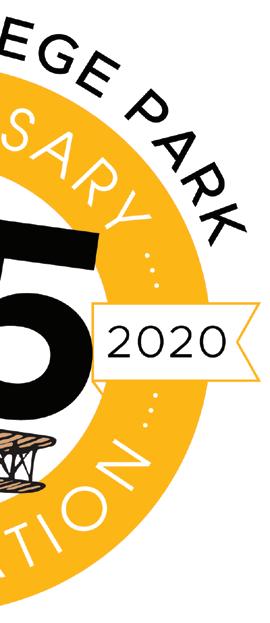
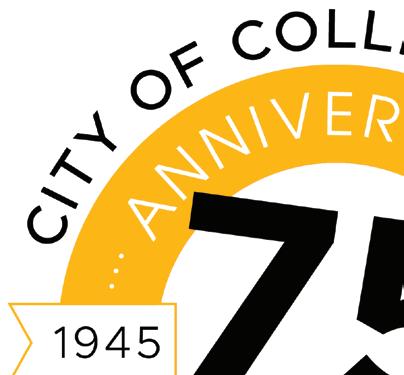
Today, the City of College Park is a thriving home to more than 30,000 residents, an internationally renowned university and the world’s oldest continuously operating airport.
While we are unable to celebrate in person due to the COVID-19 pandemic, we still want to celebrate with you! During this pandemic, we have seen so much amazing community spirit that we would like to continue showcasing it through the Show Your College Park Pride Contest!
We want to see and hear your stories and pride for College Park! Submit your videos, drawings and photos of your College Park spirit. All video and image entries will be made into a video collage to showcase our wonderful residents and their favorite memories. We can’t wait to see your creativity and what you’ll send!
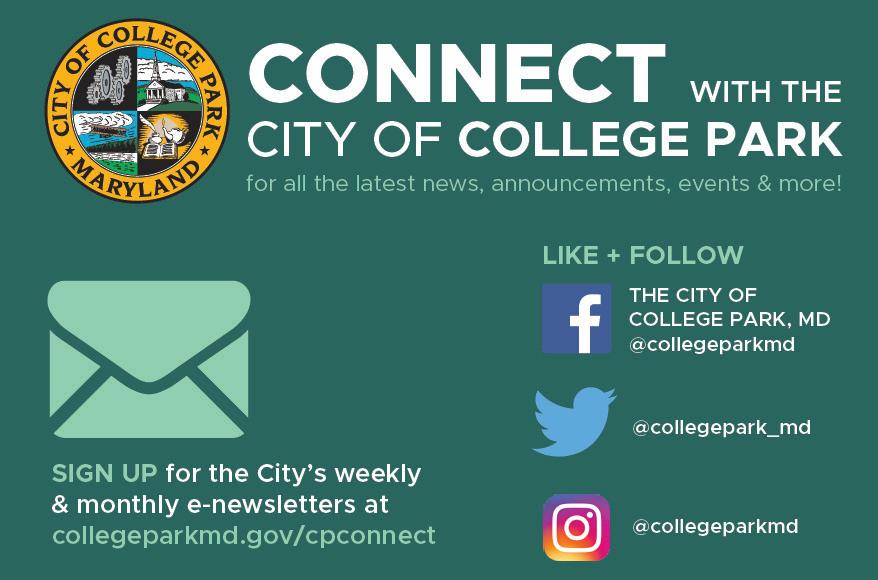
By submitting your favorite memories, you will be entered to win a $50 gift card from the College Park business of your choosing (as long as the business you choose has the capability to issue a gift card, certificate, voucher, etc.). Winners will be randomly selected.
For more information on how to enter and contest rules and guidelines, please visit our website at www.collegeparkmd. gov/75thanniversary.
Recognizing our Greenest Residents and Businesses
Each year, the City of College Park’s Committee for a Better Environment (CBE) recognizes special efforts made by members of the local community to protect the environment.
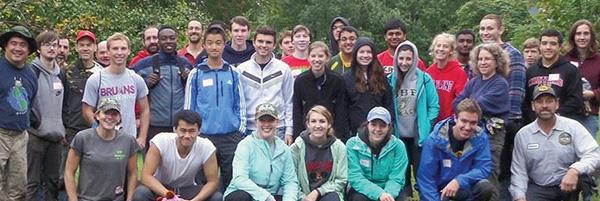
In addition to commending those who have contributed in some way to a healthier environment, CBE hopes to increase environmental awareness, and encourage wider appreciation and adoption of environmentally sound practices.
WHO’S ELIGIBLE?
Residents of the City of College Park, as well as businesses, organizations, associations, and institutions which operate or are located in the City are eligible.
CATEGORIES OF AWARDS:
1. Environmental 3-R’s: reduce, reuse, recycle
2. Environmentally friendly landscaping and beautification
3. Conservation of natural
resources
4. Other environmental achievements
COMPLETE AND SUBMIT THE FORM:
Please submit the following information to nominate a resident, business, organization, association, or institutions for a CBE Green Award:
NOMINEE INFORMATION:
• Name:
• College Park Address:
• Phone:
• What has the nominee done to make College Park greener? (note: please feel free to attach a page or photos)
NOMINATED BY:
• Your name:
• Address:
• Phone:
Submit your nomination by email to jmccaslin@collegeparkmd. gov or by mail to Janet McCaslin, Department of Public Works, 9217 51st Avenue, College Park, 20740.
The City of College Park needs your help to count all residents before the Census closes at the end of the month.
You can still respond now by completing and mailing back the paper questionnaire, by responding online at 2020census. gov, or by phone at 844-330-2020 for English or 1-844-468-2020 for Spanish. Please cooperate with any census workers that may knock on your door.
The Census is an easy way for you to contribute to your community. Local musicians share the importance of the census in order to secure enough funding for healthcare services, schools, businesses, and more! Watch the music video and share with your friends and neighbors: https:// youtu.be/yECO4UdgY1U.
Your community loses out on $18,250 per person over a 10year period for each person who does not fill out their survey. This includes loosing out on funding for schools, infrastructure and so much more! Can we count YOU in?
Learn more at www.collegeparkmd. gov/census2020 or contact the City’s Department of Planning and Community Development at 240487-3541.
All information is current as of September 6.
Posh Cycling & Fitness. New members receive a one-week free pass until Sept. 30. Go to Posh’s Facebook page for more details: facebook.com/pg/ poshcyclingandfitness.
OpenBarre Studios. College Park’s dance fitness studio offers virtual classes on Mondays, Wednesdays and Fridays, and outdoor classes Tuesdays, Thursdays and Saturdays. For more information, go to openbarrestudios.com.
Numi Yoga. In addition to daily livestreamed offerings, Numi Yoga offers an outdoor yoga class each Wednesday from 7 to 8 a.m. and Saturdays from 9 to 10 a.m. Find out more and sign up at numiyoga.com.
Orangetheory Fitness. Free first class with individualized training. Visit orangetheory.com and enter your location for more details.
Gentle and Advanced Chair Yoga. Simple yoga classes offered both online and outdoors with healthy social distancing to increase resilience, improve
fitness and promote mindfulness. Modifications offered along the way. No experience needed. First class free! For more information and to register, email yogiamalie@gmail.com.
Hollywood Farmers Market. Located in the parking lot of the Hollywood Shopping Center, the market is open Saturdays from 9 a.m. to 1 p.m.
College Park Farmers Market at Paint Branch Parkway. At 5211 Campus Dr., this market is open Saturdays from 8 a.m. to 1 p.m.
Novel Writing Workshop. The College Park Arts Exchange’s virtual creative writing workshop will take place on Sept. 26 from 10 a.m. to 5 p.m. Join local writers Mary Amoto and John Feffer for an energizing mix of lectures, discussions and writing sessions. Cost $40. Visit cpae.org for more information.
Draw like George Agnew Reid. Join artist Racquel Keller on Zoom for a free art workshop sponsored by the College Park
Arts Exchange on Sept. 12 from 10 to 11:30 a.m. For more information, email info@cpae.org.
Draw like Sigrid Hjerté. Join artist Racquel Keller on Zoom for a free art workshop sponsored by the College Park Arts Exchange on Sept. 26 from 10 to 11:30 a.m. For more information, email info@cpae.org.
Tuning Meditation. Led by Allison Hughes on Sept. 22 from 8 to 9 p.m., singers create a moving and delightful music improvisation. Inspired by the work of avant garde composer Pauline Oliveros, this free Zoom event is brought to you by the College Park Arts Exchange. For more information, go to cpae.org.
Saturday Night with Eric and Leo Maring. College Park’s music man Eric Maring hosts concerts each Saturday night at 9 p.m. with his son, Leo. For more information, go to maringmusic. com.
Zoom Book Club. Join the College Park Arts Exchange for a virtual discussion of Song in
a Weary Throat: An American Pilgrimage, by Pauli Murray on Sept 15 from 7 to 8:30 p.m. For more information, go to cpae.org.
Keep New Deal Café Rockin’. Online auction to support the New Deal Café from Sept. 8 through 26. To view items and place bids, go to 32auctions.com/ newdealcafe.
College Park Community Library. The library’s book club meets on Oct. 13 from 7 to 8:30 p.m. to discuss The Guardians by John Grisham. Church of the Nazarene, 9704 Rhode Island Ave. Please bring a folding chair and face mask.
Tax relief for homeowners, October 1st Deadline. State law established the homestead tax credit to help homeowners with assessment increases on a principal residence. You only need to apply for the credit one time. To learn more and see if you qualify, go to the Maryland Department of Assessments and
Thanks for the opportunity to represent you. We’re not on the ballot this year, but College Park values and interests are.
We want you to have the information you need to vote safely. And to know our choices on the ballot
We’re for Joe Biden, Kamala Harris, and Steny Hoyer because they stand up for working and retired families.
And we’re voting YES on the state and county referendums to invest in our local schools, libraries, and roads.
If you have questions or would like to help, call (240) 712-4646 or go to 21stDistirctDemocraticTeam.com
Many thanks!
Jim, Joseline, Ben, and Mary
The safest and simplest way to vote is request and ballot by mail.
Unlike in the Primary, you will not receive a ballot unless you request it either online or by mail. You will get an application in the mail, and you can either return it by mail or go online and request your ballot there.
After you’ve received your ballot, there are three ways to vote:
1. Mail your ballot back.
2. Drop it off in a secured box (at a location to be announced).
3. Vote in person on election day or during early voting at the XFinity Center, UMD.
Voter Registration online or by mail: Tuesday, October 13.
Request a Mail-in Ballot: Tuesday, October 20.
Early Voting in person: October 26 – November 2, 7am - 8pm
Election Day in person: Tuesday, November 3, 7:00pm - 8:00PM
www.elections.maryland.gov
Taxation at dat.maryland.gov. State aid for eviction prevention assistance. As many as 20% of households are behind on rental or utility payments due to the pandemic. In response, Maryland has announced $30 million in funding for eviction prevention assistance. If you or someone you know is facing eviction because of the pandemic, you may be eligible for assistance. For more information, call the District 21 Delegation at 301.858.3141 or email 21stdistrictdelegation@ gmail.com.
Unemployment benefits. If you need assistance obtaining unemployment , please let the 21st delegation know. Call 301.858.3141 or email 21stdistrictdelegation@ gmail.com.
Contacting the 21st District Delegation. The 21st District Delegation welcomes questions, thoughts, and requests for help from all College Park constituents. Please call us at 301.858.3141 or email 21stDistrictDelegation@gmail. com.
PRESIDENT / VICE PRESIDENT
Joe Biden / Kamala Harris

US HOUSE
Steny Hoyer
JUDGES OF THE CIRCUIT COURT
April Ademiluyi
Wytonja Curry
ShaRon Kelsey
Cathy Serrette
Gladys Weatherspoon
COURT OF SPECIAL APPEALS AT LARGE
E. Gregory Wells
Yes: Continuance in Office
STATE BALLOT QUESTIONS for EDUCATION FUNDING
#1: State Budget Amendment – FOR #2: Sports Betting – FOR
COUNTY BOND ISSUES FOR ROADS, LIBRARIES, SCHOOLS, and PUBLIC SAFETY
Questions A, B, C, D, and E – FOR
The delay and possible cancellation of Nick Cross’ sophomore football season at the University of Maryland has taught him how quickly life can change.
“You never know what’s going to be here today and gone tomorrow,” Cross said. “It’s another reason to go out and work hard everyday and treat it like it’s your last. I don’t take anything for granted, especially now, with the situation we’re in. It can be gone in a heartbeat.”
Cross and every other fall athlete in the Big Ten Conference found out Aug. 11 that their seasons were being postponed because of health and safety concerns due the pandemic. The league is hoping to play in late 2020 or early 2021.
“It was disappointing,” Cross said, “but I had kind of known that that would be the case. There’s nothing that we can really do about it, so I just went back to training and continuing to get my body right, my mind right, so that whenever we do play, [I] get the most out of it.”
Cross, who was an AllAmerican defensive back at DeMatha Catholic High School in Hyattsville, is on track to graduate in three years. He’s been surging ahead academically by taking classes the past two summers. He has a 3.1 GPA as a finance major in the Robert H. Smith School of Business. He spent part of the summer interning with Morgan Stanley.
“It’s imperative that I get my degree,” said Cross, who lives in Bowie and will turn 19 on Sept. 10. “It’s always good to have that.”
At 6-foot-1, 212 pounds, Cross has prototypical NFL size for a strong safety. He would first be eligible for the NFL Draft in 2022.
“Nick has an amazing future ahead of him,” said Joe Sego, who coached Cross in basketball at St. Jerome Academy in Hyattsville. “He is
a man of faith who is focused on his studies and his dream to one day play in the NFL.”
Cross saw action in each game for the 2019 Terrapins (3-9) with five starts. He recorded 45 tackles (30 solo) and tied for the team lead in interceptions (2) and pass breakups (5). His first pick came in game four against Penn State.

“I was grateful that I was presented an opportunity to make a play that early,” he said.
“He has the characteristics of the great ones,” Maryland Head Coach Mike Locksley told The Diamondback, the school’s student newspaper, in December 2019. “To me, that’s how you develop your program. And that’s what I’m used to seeing from great players.”
Cross transferred to St. Jerome in eighth grade. Sego first became aware of him after receiving a text from physical education teacher Eric Heller, who saw him throw a football across the entire parking lot. Sego said Cross’ athleticism reminded him of a fellow DeMatha alum he coached at St. Mark’s: former Miami Dolphins All-Pro Cam Wake.
“Nick was as fast and quick as they come and had the strength of a kid two to three years older,” Sego recalled. “He played for me for two seasons, winning a city title in 2015 and a runner-up the next year. Aside from sports, Nick is an excellent student and a soft-spoken young man who has a focus that belies his age.”
Right now, Cross is focused on helping the Terrapins have a winning season – whenever that may be.
“I’m more confident,” he said. “Last year, I was just trying to learn the system, learn the speed of the game and learn how to communicate with teammates and coaches. This year should be a lot smoother.”
Chris McManes (mick-maynz) has won three national writing awards. He covers University of Maryland athletics for the College Park Here & Now.
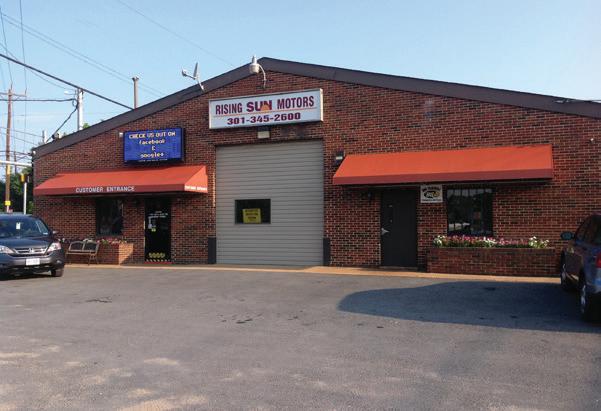
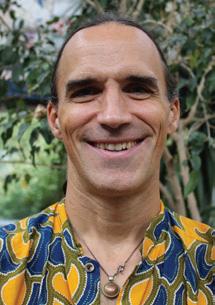

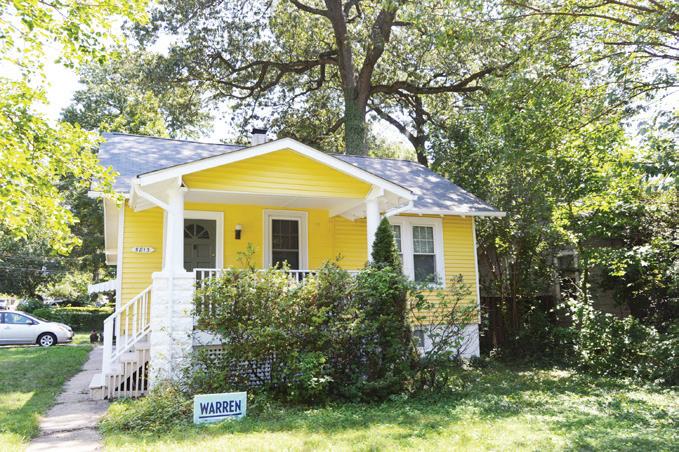
 By Eric Maring
By Eric Maring
Last night, I asked both of my sons to see how much of a fivegeneration family tree they could fill out. Both sat down to the task without a harumph, which is always a relief. My request turned into a special moment for each of them as they reflected on our family.

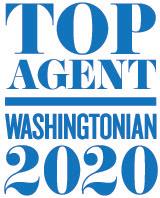
“Yes, this grandfather was in the Second World War, this great-grandfather was in the first,” I told one. “I don’t remember my greatgrandparents’ names,” my other son said, adding “What is your grandmother’s maiden name?” I asked him, “Do you remember the photo of these ancestors that hangs in your grandparents’ living room?” He thought for a moment. “Right, both of those grandfathers were named John,” I said.
My younger son and I talked about my maternal grandmother for nearly an hour, pondering all of the factors that contributed to her sad and early passing at just 55. Though heavy, the conversation was important and fruitful — one we’ll long remember.

Some of my neighbors here in College Park led me to this rich time with my sons. I marvel at the people around me who are older and way wiser than I am. Hearing their stories is good for me, and I think this kind of engagement is good for everyone else, too. Folks enjoy sharing their stories, and their experiences link us to the past, give us guidance in the present and can help us see our way forward.
I have a neighbor who remembers when my road,
Guilford, was still a creek. Another neighbor fled Kuwait with his family, stuffing themselves and all of their belongings in their car when Sadaam Hussein invaded. And my neighbor Cassie Ghee shook hands with Nelson Mandela. Cassie’s been my neighbor for over 20 years. Since I’ve known her, Cassie’s shared bits and pieces of her story with me. Her tales are so special that I gave her a holler and asked her to
share more.

Cassie entered the foreign service in her 30s, fairly late for that kind of career, and spent nearly 30 years on assignments overseas. Being in the service proved to be a great way to formalize her love of travel. She began her work in Mali and was posted to more than seven countries over the course of her service, the hardest assignment perhaps being that first one. She was stationed in Honduras

during the rise of the Contras, on a military base in the Sinai assisting in helicopter missions overseeing the Egypt-Israeli treaty, and in Uganda, where she met the Clintons. And about that handshake? She was on assignment in Lesotho when Nelson Mandela became president of South Africa, and she met him when he visited her post. Cassie had tale after tale to tell, and I relished them all.
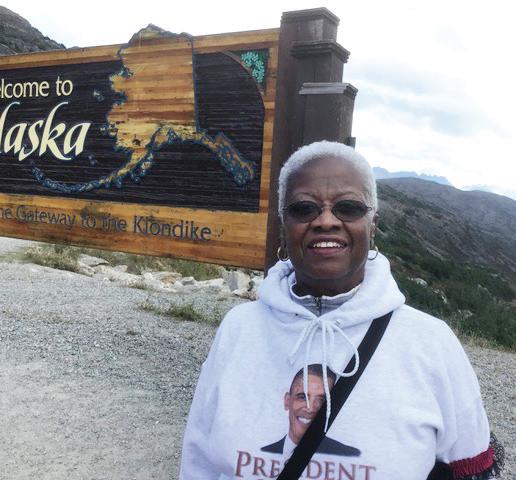
Cassie retired from the foreign service in 2008, and she’s spent much of her time since then logging hours at the National Archives in College Park, where she’s researching her genealogy. She also volunteers there to help other folks who are on genealogical explorations of their own. She also works with African American genealogy groups, sifting through records and piecing together family histories where records are scant. Over the years that we’ve been neighbors, Cassie has encouraged me to learn more about my own ancestry, and in a recent conversation she told me that the most basic and important thing you can do is make a family tree. Her encouragement led to that special experience I had with my sons.
Talking to older neighbors can help us recall moments we may have long forgotten, especially

in the blur of raising small children. Cassie remembers the first time Lis and I came to the neighborhood and crossed the road to talk to her. She remembers seeing us holding our little baby Leo right before she went off on a three-year mission to Trinidad. She recalled the nuns who used to live next door and the neighbor who baked her a loaf of bread when she, herself, was new in the neighborhood. She delighted in how neighbors kept coming to her lawn to watch fireworks on the 4th of July, even after the homeowner who started that tradition had moved away. We can glean a lot of important life lessons from our wise neighbors, and talking with Cassie helps me remember and appreciate that. Some of our neighbors live alone, and they may feel even more alone as we’re spending so much time at home these days. Hearing someone else’s story can help you understand your own story better. Cassie, thank you for sharing your great wisdom with me. You’re a gem of a neighbor.

in the August 4 council meeting that, “because these orders are emergency orders based on a pandemic response, it’s better that the county level be the front line for that because they are the ones that are specifically authorized to act.”

According to City Manager Scott Somers, the city plans to adopt more signage to emphasize health orders. He also said that College Park is placing decals at sixfoot intervals on downtown sidewalks.
The city council has informed residents about how to access county and state resources and regulatory agencies. The city encourages residents to call 911, or the county assistance line 311, to report emergencies and violations.
On August 20, the city released a summary of the state and county executive orders related to the pandemic. The summary covers social distancing and face cover requirements, and details the county’s 50-person limit on gatherings.
In a July 30 press conference, County Executive Angela Alsobrooks said that individuals may be subject to misdemeanor charges for violating the state’s executive order, citing two key statistics. “44% of people reporting they have the COVID virus have been at a family gathering, and 23% who reported said they attended a house party. That means 67% of reported cases came from family gatherings and house parties,” she said. Although 80% of the University of Maryland’s coursework will be online, students back on campus this fall are likely to challenge the county’s 50-person restriction. College
Park’s Unruly Social Gatherings Ordinance, informally known as the nuisance law, may come into play if gatherings exceed the county limit. The ordinance, which passed in September 2019, makes certain types of gatherings a municipal infraction that warrant a civil citation.
State and county restrictions, coupled with the nuisance law, are intended to help protect students and residents from community transmission of COVID-19.
Violation of county and state executive orders could result in fines, revocation of city rental occupancy permits and conviction for misdemeanor offenses. According to the summary released by the city, students who violate the orders will be referred to the University’s Office of Student Conduct for possible sanctions. The city will continue to rely on state and county officials for guidance and will adjust the city’s response to the pandemic as necessary.
FROM PAGE 1
neighborhoods across the city, was also livestreamed on Facebook and Youtube.

Ryan Corbett, Dominic Elliott, Professor Goldstein and the Adjuncts, ilyAIMY, Laundry World, Eric Maring, Security Council, Melissa Sites, Mark Rooney, and Transatlantic Crossing were some of the featured musicians.

CPAE is a grassroots organization with a mission of bringing the arts to the people of College Park. Presenting live music during quarantine has been challenging; the organization has had to cancel most performances.
Melissa Sites, executive director of CPAE, said that the
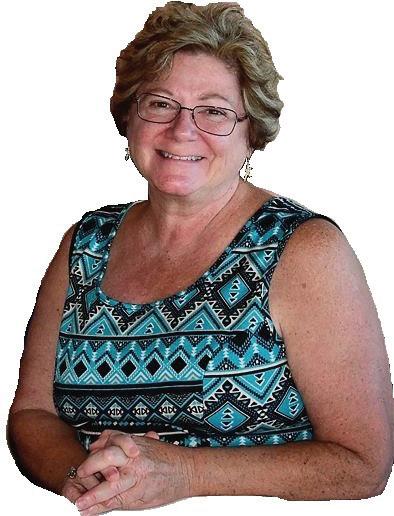
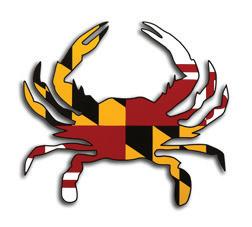

pop-up model for the Fourth of July performances allowed residents to enjoy live music throughout the city while remaining safe.
“The July Fourth event went so well that everyone wanted to do it again, so we decided Labor Day was a great opportunity,” said Sites, adding, “We prioritize safety, so keeping crowds dispersed at different locations was an advantage of this model, and also allows us to fulfill our mission of bringing arts events to different neighborhoods around the City.”
The event began on Friday, Sept. 5 in Berwyn. Residents Kristen Koyama and Mark Rooney were joined by Erika Ninoyu and Kota Mizutani for Japanese drumming known as Taiko.
Rowan Corbett, a Districtbased singer-songwriter, also performed his unique blend of traditional folk, American ballads, modern rock and electronica. Another performer in Berwyn, ilyAIMY (I love you and I miss you), brought percussive-acoustic folk-rock music to the porch and virtual stage.
The festival brought performances by Melissa Sites, Kirsten Arant and the Bele Bele Rhythm Collective, the Dominic Elliot Collective, and Julia May to porches throughout the city. Both Transatlantic Crossing and Professor Goldstein and the Adjuncts, “A teacher-folk band with punk leanings and tongue-in-cheek lyrics,” according to the CPAE website,
performed in Hollywood on Sunday.
On Sunday, the Laundry World! ensemble rocked Rhode Island Ave.
The last day of Porch Play featured Eric Maring and his two sons Leo and Julian, Security Council rounded out the memorable Labor Day festival with unique originals like “Love Under Lockdown” and “I Need a Haircut.”
“We prioritize safety, so keeping crowds dispersed at different locations was an advantage of this model, and also allows us to fulfill our mission of bringing arts events to different neighborhoods around the City.”
Melissa Sites, College Park Arts Exchange executive director
According to City Manager Scott Somers, the city plans to adopt more signage to emphasize health orders. He also said that College Park is placing decals at sixfoot intervals on downtown sidewalks.
— the same Magruder who donated Magruder Park to the city. Until 1951, it was the library closest to College Park.
The Beltsville library did not last long; it closed when the elementary school where it was housed could no longer accommodate it. The Laurel, Hyattsville and Greenbelt libraries survived long enough to be incorporated into the county’s library system.
Prince George’s County was one of the first to take advantage of a 1945 state law that offered state funding to counties (but not to municipalities) to support public library systems.

On January 2, 1946, the county founded the PGCMLS.


The Laurel Branch Library joined the county library system in 1947, followed by the Hyattsville Branch Library in 1948, and PGCMLS took over responsibility for providing books and hiring librarians. Local communities continued to supply the buildings, and PGCMLS funded bookmobile service only for communities that did not have their own libraries. The towns of Fairmount Heights and District Heights also opened PGCMLS branches, in city-owned buildings, in 1948.

Unlike these models, the City of College Park did not initially offer PGCMLS space for a county library branch.
Instead, a local community organization, the Paint Branch Library Association, was established and provided quarters for the county system’s fifth branch, which opened in December 1951 at 4512 College Avenue, in Old Town College Park.
The Paint Branch Library Association struggled to obtain enough donations to maintain the building, however, and in 1955 the city government assumed responsibility for providing space for what was then known as the Paint Branch Library.
When the new (now recently demolished) College Park Municipal Center opened in 1959, the library was relocated there, and its name changed to the College Park Branch Library.
After PGCMLS began renting



buildings for its own branches, it developed a new plan, in 1959, for providing library service. Four regional libraries — much larger than the one- or two-room branches that were in operation — would be built to serve the county, and the existing town libraries would be operated as satellites of these branches.

In 1961, the developers of what is now University Town Center sold land on Adelphi Road in Hyattsville to PGCMLS for the construction of the First Regional Library. The sale was part of an agreement to placate University Park homeowners who were concerned about the prospects of a dense development being built on the edge of their town.

When the First Regional Library opened in 1964, PGCMLS planned to close the original Hyattsville Branch Library, but community opposition kept it alive with a new name, the William Pinkney Magruder Memorial Library Branch. In 1966, the First Regional Library was renamed the Hyattsville Branch Library. As regional libraries opened in

Oxon Hill (1967, replacing the Forest Heights branch), Bowie (1969), and New Carrollton (1971), the county system also opened satellite branches in underserved parts of the county.

At the same time, use of the College Park and Magruder branches fell significantly, in large part because the nearby Hyattsville Branch Library was much larger, had longer operating hours and provided more services.
The College Park branch was nearly closed in 1970, and again in 1977, for budgetary reasons. In 1978-1979, both the College Park and Magruder branches began operating with library assistants rather than full-time librarians.


In 1980, the College Park branch relocated to a wing of the former College Park
Elementary School at 4601 Calvert Road, and in 1984, the Magruder branch relocated to the old Hyattsville Municipal Building at 4307 Jefferson Street, and then to the current Hyattsville Municipal Building when it opened in 1990.
By 1987, these branches, along with the Mt. Rainier branch, also on Route 1, were the smallest libraries in the system and the only ones still operating in municipally-owned buildings.
PGCMLS suffered the worst budget crisis in the system’s history in the early 1990s.
Construction of Metro’s Green Line closed through traffic from Good Luck Road to Calvert Road, and this further reduced use of the College Park branch, which closed in March 1994. Two years later, budget issues led to the closure of the Magruder branch. Although College Park hasn’t

had a branch of the county library system for over a quarter-century, it does have a community-run public library.
In 2012, College Park residents Joseph Smith and Jackie Kelley founded the College Park Community Library, which is operated by volunteers and acquires all of its books as donations.
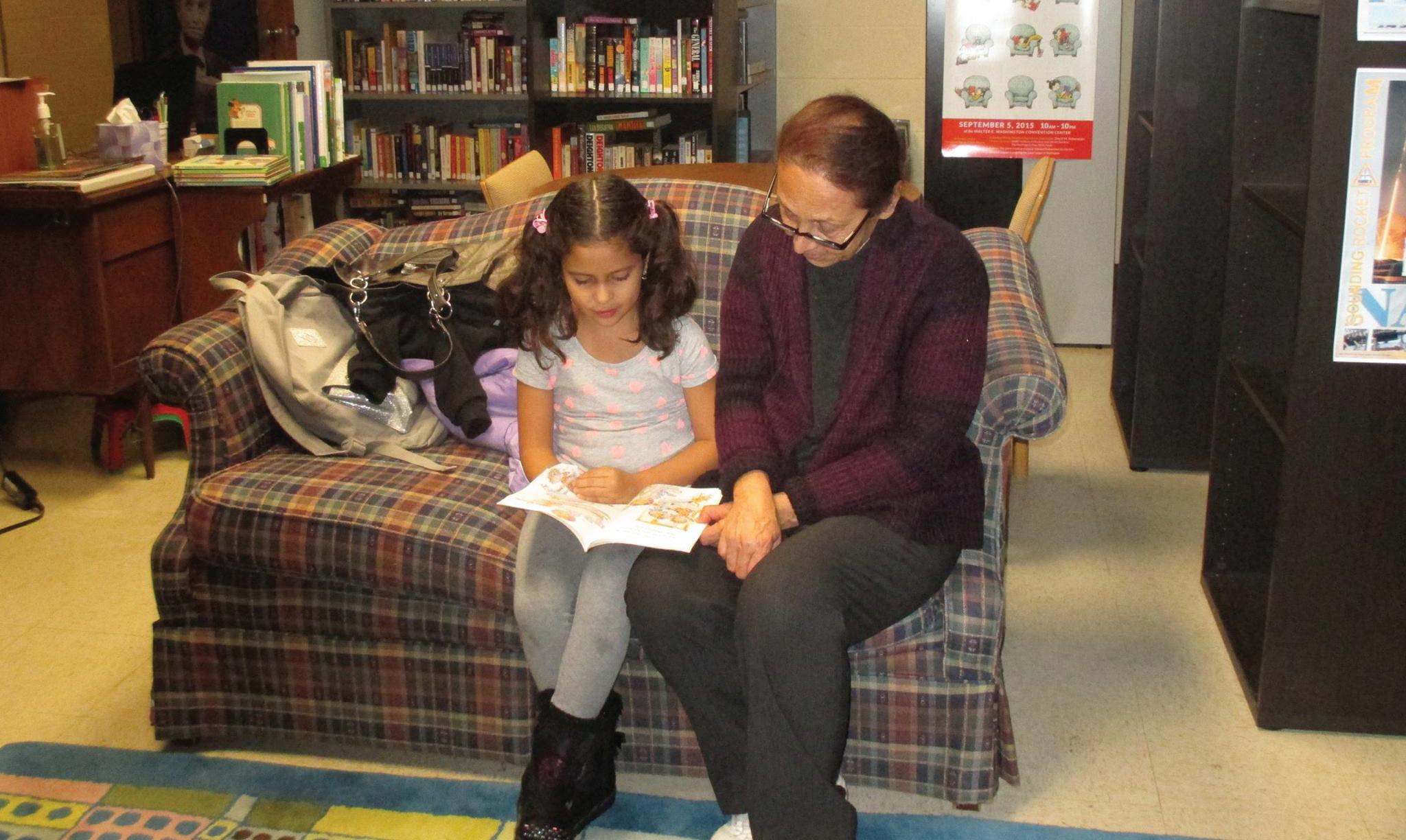
Due to the high cost of rent, the library is housed in donated space on the lower level of the College Park Church of the Nazarene (which it is not affiliated with) at 9704 Rhode Island Avenue.
The library is currently closed due to the COVID-19 pandemic, but when it is open, volunteers teach classes, coordinate art and book groups that meet in the space, and run children’s programming, including helping kids with homework.



We have envelopes for correspondence, work orders for the job, proposals for the quote, brochures for advertising, directories for the club, newsletters for the newsworthy, postcards for the announcement, posters for the event, tickets for the show, programs for the concert, menus for the hungry, and stickers for identification.
Free parking and a free cup of coffee!
College Park’s fitness studios were hit hard by the COVID-19 orders that shuttered businesses across the state on March 16. But as the College Park Here & Now reported in its inaugural issue, the city’s fitness studios quickly pivoted to virtual lessons, and the move is paying off.


At least one studio will keep its virtual side when it opens its doors again.





“Our virtual platform is here to stay,” says Lauren Filocco, owner of the OpenBarre fitness studio.




The studio has continued to stream live sessions and build its library of on-demand classes. Running a virtual studio has been an ongoing learning process, Filocco says. “I’ve learned a lot more than I ever thought I would about video editing. Our clients have been incredibly supportive and have shared feedback that has helped me improve and build upon our virtual platform.”
While the studio is still closed, it has offered inperson outdoor classes since June in response to requests from clients and instructors. “We feel like it’s the safest in-person option at this time, and even though we’re staying far apart relative to what our classes used to look like, it feels nice to actually see people’s faces, and the clients who have come to
outdoor classes have shared that they just feel much better and more engaged in person,” Filocco says. Local fitness centers were able to reopen June 25, but they’re subject to a host of restrictions,including capacity limits, that make indoor classes impractical. But when it is safe to reopen the studio “the first classes that we would bring back indoors would be stretch classes, because masks are required and we feel like that’s the most mask-friendly type of class.”
In reflecting on the months-long health emergency, Filocco says “it’s a strange time for all of us, but it’s been incredibly rewarding to see the fortitude of our team members and the support from our clients. I couldn’t be more grateful for all of them.”

 By Carson Peters
By Carson Peters
Even as this pandemic has changed our day-to-day experiences, front-line workers contribute so much to the stability and sustainability of our community. They risk their safety and health, and even their lives, for the well-being of all of us.
In gratitude for their work,
I launched the Essential Card Campaign. The campaign calls on College Park’s residents to show their gratitude with handwritten thank-you cards. The University of Maryland’s Office of Community Engagement has joined the campaign, and together we have distributed some 300 cards in College Park since June. We’ve thanked essential workers in the city’s Department of Public Works, the hard-working men and women with the postal service, and employees in our local grocery stores and businesses.
Essential workers act as our invisible support system, taking risks every day to give the rest of us a semblance of normalcy. I would like to thank the residents of College Park who have written the letters and cards that have made this campaign possible. I would also like to thank the University of Maryland; their support has helped our efforts flourish.
Contribute to the Essential Card Campaign by sending your cards to Essential Cards, 4815 Calvert Road, PO Box 29, College Park, MD 20740. For more information, go to essentialcards.weebly.com.


























